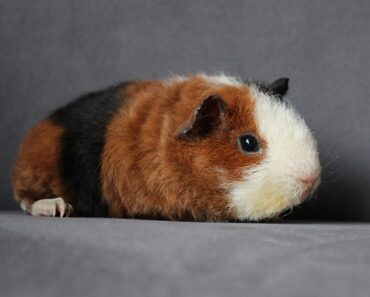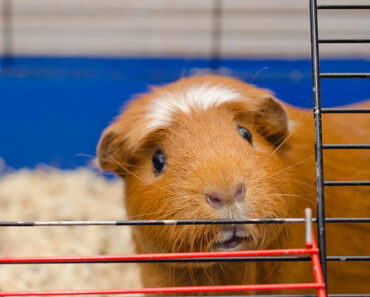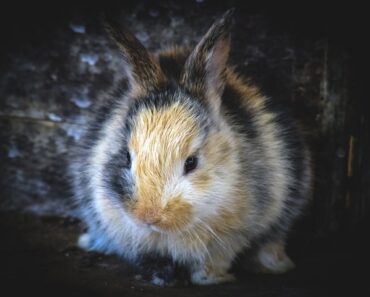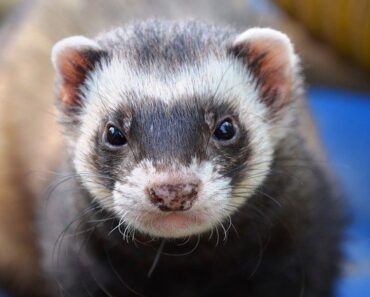
If you want your couple of rabbits to reproduce or simply want to learn more about the subject, be aware that the reproduction of these animals is more complex than it seems. Indeed, if rabbits reproduce easily, giving birth to bunnies and allowing them to grow is another story. A little can disturb the couple and the mother may end up abandoning her young, or even killing them. Let’s take a look at rabbit reproduction.
When can rabbits reproduce?
A couple of rabbits can reproduce as soon as they reach sexual maturity. In males, sexual maturity is reached at 6 to 7 months. In the female, it is necessary to wait only 4 to 6 months depending on the breed. Small breeds of rabbits reach sexual maturity earlier than giant breeds. Nevertheless, it is recommended to wait until 8 months of age to breed rabbits.
As soon as the male has reached sexual maturity, his testicles descend from his abdominal cavity to his scrotum. They are then perfectly visible. This is how you can more easily distinguish a male from a female. However, from the age of 5 weeks, the male has a small tube and the female has a small slit.
While males are able to reproduce throughout the year, females generally have to wait for periods of heat. The strong reproductive period of this species begins in January or February and ends in July. During this period, the female is in heat in cycles of five to ten days with breaks of two to three days between each cycle. Every two weeks or so, the rabbit becomes agitated, more aggressive and cambered, ready to be fertilized.
It should be noted that females are fertile until the age of 4 years on average, compared to 5 to 6 years for males.
How do mating and gestation take place?
For a couple of rabbits to reproduce, it is desirable to place the female in the male’s cage and not the other way around. If the conditions are favorable, the operation is very quick. The female lifts her rump and the male climbs on it. The act lasts only a few seconds, after which the rabbit falls on its side with a high-pitched cry, which is quite normal. Since the female rabbit does not menstruate, it is the mating that causes ovulation.
Gestation lasts between 28 and 34 days in rabbits. From 15 days, the pregnancy of the female is clearly visible and perceptible on palpation of the abdomen. This palpation is useful to ensure that the rabbit is truly pregnant. Indeed, it happens that ovulation does not lead to fertilization, but that it causes a swelling of the belly and milk production. The females then prepare their nest for the pups they think they are expecting and may cause constipation by ingesting hairballs.
Little by little, the pregnant rabbit prepares a nest for giving birth by pulling out hair on her belly. Her behavior changes about 10 days before giving birth. Be attentive, because excitement sometimes causes her to forget to eat.
How is the birthing process in rabbits?
Birth usually takes place at the end of the night, at dawn, and lasts between 30 minutes and an hour. The female rabbit, which must have been separated from the male long before birth, is on her own and manages the whole process. Count about 10 minutes per pup, knowing that a female can give birth to an average of two to four young in the dwarf rabbit and up to six or ten in the larger ones.
Bunnies are born blind, with closed ears and hairless bodies. They weigh between 20 and 40 grams. The mother cuts the umbilical cord with her teeth and devours the placenta before cleaning each of her cubs by licking them.
If the rabbit’s attention is important at birth, the bond quickly fades and the young leave the nest after two to three weeks. Very early, she leaves the young in the nest and only returns a few times during the day, as mothers do in the natural state. It is around six weeks that the bunnies are completely weaned. Able to eat solid food and provided with their coat, they can then be adopted, ideally at eight weeks of age so that the feedings can be completed.
It should be noted that cannibalism exists in domestic rabbits. It happens that a rabbit devours the baby it has just given birth to. There may be several reasons for this behavior, such as severe stress that causes her to kill her young, an environment that she feels is unsafe for her litter, proximity to other rabbits that makes her fear that they will attack her young, or an accident when she cuts the umbilical cord. Be vigilant, as this type of behaviour is not that rare.
Also, don’t handle the cubs during their first week of life unless the mother is neglecting them. Your scent may disturb the rabbit and cause her to abandon her litter or devour it.






